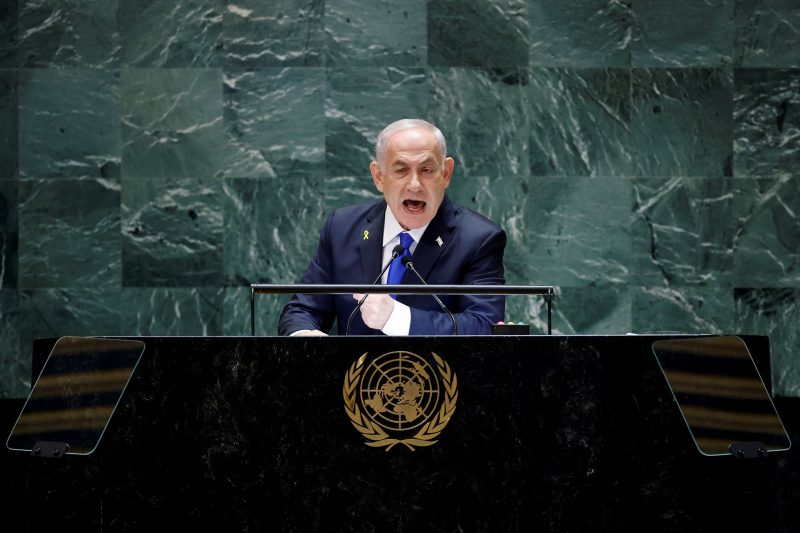
Netanyahu Defiant in Persevering Against Hezbollah, Despite U.S. Cease-Fire Proposal
The United States has long held a prominent role in the geopolitics of the Middle East, often acting as a mediator in conflicts and disputes that arise in the region. However, recent developments have put the U.S. diplomatic efforts to the test, particularly in the ongoing conflict between Israel and Hezbollah.
Israeli Prime Minister Benjamin Netanyahu’s recent vow to continue the war against Hezbollah, defying a U.S.-backed cease-fire plan, highlights the complexities of international relations and the delicate balance of power in the Middle East. Netanyahu’s decision to defy the U.S. cease-fire plan signals a shift in the traditional dynamics of the Israeli-U.S. relationship and raises questions about the future of American influence in the region.
Netanyahu’s determination to press on with the war against Hezbollah, despite U.S. calls for a cease-fire, underscores Israel’s commitment to its national security and its willingness to act independently to protect its interests. Israel views Hezbollah as a significant threat to its security, given the militant group’s extensive network of tunnels and arsenal of rockets aimed at Israeli territory. Netanyahu’s defiance of the U.S. cease-fire plan reflects Israel’s perception of the situation as a critical security issue that requires immediate and forceful action.
The U.S., on the other hand, has long been a key ally and supporter of Israel, providing military aid and diplomatic backing to the Jewish state. The U.S. cease-fire plan in the Israel-Hezbollah conflict was likely motivated by a desire to broker a peaceful resolution to the hostilities and avoid further escalation in the region. However, Netanyahu’s refusal to comply with the U.S. proposal demonstrates Israel’s commitment to its own security interests, even at the expense of straining its relationship with its closest ally.
The implications of Netanyahu’s decision to continue the war against Hezbollah, despite U.S. pressure for a cease-fire, extend beyond the immediate conflict between Israel and the militant group. The move has the potential to reshape the dynamics of the Israeli-U.S. relationship, raising concerns about Washington’s ability to influence Israeli policy decisions in the future. Netanyahu’s defiance of the U.S. cease-fire plan may signal a broader shift in Israel’s foreign policy towards greater independence and assertiveness in addressing security threats.
As the conflict between Israel and Hezbollah continues to escalate, the role of the U.S. as a mediator and peace broker in the Middle East faces new challenges. Netanyahu’s decision to defy the U.S. cease-fire plan underscores the complexity of navigating diplomatic relations in a region fraught with historical animosities and competing security concerns. The situation highlights the need for continued dialogue and cooperation among all parties involved to prevent further escalation and promote a lasting peace in the Middle East.
